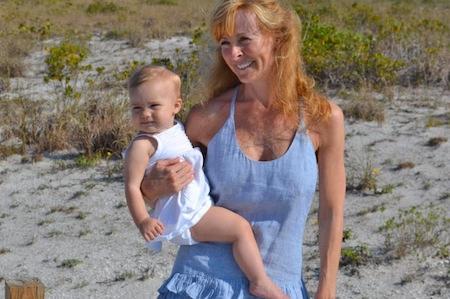Former Most Powerful Woman on Wall Street Leaned In So Far It Almost Killed Her
Published: May 16, 2016

Once upon a time, required reading for entry-level Wall Street bankers and traders included Liar's Poker, Michael Lewis's inside account of the bond trading madness at Solomon Brothers; Den of Thieves, Pulitzer Prize-winner James B. Stewart's insider-trading best seller which made Boesky and Milken households names; and Barbarians at the Gate, Bryan Burrough and John Helyar's play-by-play of the RJR Nabisco LBO which brought private equity giant KKR to the masses (and which was made into an entertaining movie starring Jonathan "High Sparrow" Pryce as Henry Kravis). More recently, on the post-financial crisis Street, books such as Lewis's The Big Short, Andrew Ross Sorkin's Too Big To Fail, and Roger Lowenstein's The End of Wall Street have taken the place of Thieves, Liars, and Barbarians as must-read cautionary tales for new bankers and traders. In addition, there have been a couple of solid books written by women which deserve close reads by new college graduates entering the wild world of Wall Street.
One is Opening Belle, a fictional account of Maureen Sherry's experiences working as a managing director for the once high flying and now defunct Bear Stearns. Another, published just over a month ago, is former Lehman Brothers CFO Erin Callan Montella's Full Circle: A memoir of leaning in too far and the journey back.
Callan Montella, who has said her book is "not intended to be self-help or advice," famously shot up the Wall Street ladder and became the chief financial officer of Lehman in her early 40s, but infamously held the post for just a few months before Lehman went under. Afterward, she left Wall Street altogether, went into a sort of hiding, married a retired New York City firefighter, and now, some eight years later, has emerged a changed woman. And her book has been receiving some incredible accolades.
Fortune has called it "stunning." Bloomberg has called it "powerful." And, if the opening sections of Full Circle are any indication, I call it a worthwhile read for any young person about to begin a career on Wall Street, or in any other industry for that matter.
The following excerpt comes early on in Full Circle, just after Callan Montella has let readers in on a secret: she survived a suicide attempt not long after leaving Lehman, having swallowed a bottle of sleeping pills the night before Christmas.
So how did I get to a hospital bed on Christmas Eve in 2008? After such a seemingly accomplished and happy life, how did I lose my way so badly? The story seems complicated on the surface, but at its heart, it's shockingly simple. By the age of forty-two, I had made my career the absolute center of my existence, consuming all my energy and focus. It appeared that my dedication had paid off when I became chief financial officer of Lehman Brothers at the end of 2007. I wasn't just the highest-ranking woman on Wall Street, but one of the highest-ranking people on Wall Street, period. And I was proud of my job. I drank the Lehman Brothers Kool-Aid … I think I confused success with passion. Because I was doing so well, my career was surely what I loved. It must have been what I was meant to do with my life. I had it backward. Maybe I thought I loved it because I was so good at it. And maybe it seemed easier to be good at work than good at life.
Later, she reflects on what she now believes to be a healthy way to look at a career, which she came to, at least in part, after watching a documentary about a professional athlete who noted that his career was not his "purpose" but a "platform."
That simple idea that a career could be a platform, not a purpose, was like a slap across the face. The good kind. A wake-up call. I had done the opposite, making a successful career my purpose, not a platform for something more meaningful. And, really, in and of itself, my career had no purpose. I am not talking about a job, a means to survive and take care of others. I am talking about my career. The concept of career, for me, suggests a broader meaning of a life plan marrying your interests, passions, and livelihood. What meaningful goal or agenda was I accomplishing with all that effort and energy flowing into my career? My career was not a means to an end. It was the end. When I reflect on all the sacrifices that were made for that end, it strikes me as somewhat wasteful.
In Full Circle, Callan Montella also dives into her part and other behind-the-scenes action in Lehman Brothers' bankruptcy, the biggest ever in U.S. history. But the heart of her tale seems to have less to do with Wall Street and the financial crisis that nearly decimated the world's economy, and more to do with the perils of putting your career first.
Bloomberg summarizes Full Circle's intentions well: "It offers a case study of the sort of overachiever personality that thrives in finance, which carried Callan to the top of the industry."
Follow me on Twitter.
Follow us on Instagram.
Read More:
Q&A with a Stanford Grad Who Founded Her Own Venture Capital Firm
Wall Street's First CHO (Chief Health Officer) and the Benefits of Leaving Work at 7
Secrets to Success of First Female Partner at Big-Swinging Silicon Valley VC Firm
